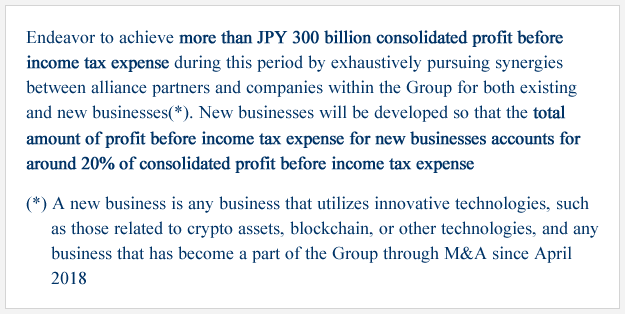
You might consider a career as a consultant if you're thinking about pursuing a career. This type is smaller and can offer more specific services. Some other advantages include a more entrepreneurial culture and higher salaries. Boutique firms can also provide an environment where employees are encouraged and supported to develop as professionals.
Smaller size
A boutique, smaller-sized consultancy firm may be an option if the cost of great resources is a concern. There are several advantages to working with these small firms. They are often more cost-effective that larger firms. There are disadvantages, however, to smaller firms.
Although big companies can be great places to work, it is possible that boutique firms could be better for your career. They place more emphasis on fit and industry knowledge than size. Because they are smaller firms than global consultancies that screen applicants, they are less likely and more inclined to hire a "blank-slate" candidate.
Services that are specialized
Boutique consulting firms specialize in a specific field and work with clients on specific issues. They offer a wide range of services, including cloud migration, data management and advanced analytics powered through machine learning. They use agile methodology which allows them to be more flexible and responsive. They are able to react quicker to changes in scope.

Boutique consulting firms specialize in specialized services to help enterprises solve unique business problems. They use the expertise and experience of their team to help enterprises solve the most pressing issues. Their expertise allows them the ability to help enterprise teams transform their businesses using technology. Boutique consulting firms are crucial partners in a world where companies need to react quickly.
Entrepreneurial culture
Most boutique consulting firms have less than 200 employees. They specialize in highly personalized services. They can often be considered a family of workers, people who share a passion and work together. A boutique consulting firm is more flexible than others, and allows their employees to work from home when needed.
A boutique consulting firm's culture is often more entrepreneurial than a traditional consulting firm. The entrepreneurial spirit of the firm can permeate both the firm's internal culture and its client service. This environment is conducive to innovative and creative consulting.
Higher salaries
The boutique consulting model offers certain advantages over traditional MBB. For one, smaller firms are more flexible that larger ones. These smaller firms are less strict about reviewing, so you can expect to work less and travel less each week. Boutique consulting firms tend to be more flexible with compensation and benefits than larger companies.
For example, salaries for new hires at boutique consulting firms are significantly higher than at large firms. In general, new graduates can expect to earn between PS30,000 and PS42,000 within the first two or three years. Boutique consulting firms offer many additional financial benefits.

Simple process
Boutique consulting firms can be smaller in size and more agile in their operations. The senior staff is highly skilled in their field. They can offer better advice and support clients in implementing their ideas. They also have less travel time and greater flexibility. This allows them move quickly from one project to another.
A boutique consulting firm focuses on a particular area of expertise. They provide expert information on specific issues or challenges and strive to improve every client's company. Some boutique firms specialize only in public sector work or in government, while others are more focused on one industry.
FAQ
How do I attract clients to my consultancy business
First, find a subject you're passionate about. It could be anything from social media to public relations, but there must be something you feel strongly about. If you don't feel passionate about it, you might need to start small with web design. Once you have identified the niche, be sure to fully understand its characteristics. What problems does this solve? Why should people use them? But most importantly, what can you do to help them?
It is also possible to approach businesses directly.
If all else fails why not offer your services to free events like conferences and networking evenings? This will allow you to meet potential customers without the need for advertising and also allows you to showcase your skills.
Who hires consultants
Many organizations have consultants who help them with projects. This includes small businesses, large corporations and government agencies.
Some consultants work directly for these organizations, while others freelance. The hiring process for both cases varies depending upon the project's size and complexity.
When hiring consultants, you will probably go through several rounds of interviews before choosing the person you think would be best suited for the position.
What is a consultant?
A consultant is someone who provides services for other people. It's not just a job title; it's a role where you help others achieve what they want from life. This is done by helping others understand their options and making the right decisions.
Consultants are skilled at solving problems and overcoming challenges that can arise during projects. They can provide guidance and advice on how to implement the solutions.
Consultants should be able and willing to answer any questions regarding business, technology or finance, leadership, strategy, customer service, legal, management, leadership, management, law, management, law, procurement, legal, marketing, human resources, etc.
Is consulting a real job?
Consulting is not just an entry-level career choice for people who want to make money fast - it's also a great way to learn valuable skills and build a solid foundation that you can use throughout your work.
There are many opportunities for consulting, including project management, strategy, training and leadership. Projects could include small start-ups or large international corporations.
You can develop your skills and gain experience in a variety of industries by consulting. This could involve learning to manage and negotiate teams, write proposals or manage budgets.
What kind of jobs are there for consultants?
Consultant work requires a deep understanding of business strategy, operations, and other aspects. It is important to understand the workings of businesses and how they fit into society.
Consultant work requires excellent communication skills and the ability to think critically.
Consultants need to be flexible as they might be assigned different tasks at different times. They should be flexible enough to change direction quickly if needed.
They should be able to travel extensively for clients. They may be required to travel all over the globe for this type of work.
They need to be able and able to manage pressure and stress. Consultants might sometimes have to meet tight deadlines.
Consultants may work long hours. This can mean you might not always receive overtime compensation.
How is consulting different from freelancing
Freelancers can be self-employed people who provide their services to clients, without the involvement of employees. Hourly rates are usually charged based on the time they spend working on a client’s project. Consultants often work for companies or agencies that employ them. Consultants are typically paid either monthly or annually.
Because they have control over their work hours and can set their prices, freelancers are more flexible than consultants. Consultants have better benefits, like health insurance, vacation time, sick leave, retirement plans and etc.
Statistics
- 67% of consultants start their consulting businesses after quitting their jobs, while 33% start while they're still at their jobs. (consultingsuccess.com)
- According to statistics from the ONS, the UK has around 300,000 consultants, of which around 63,000 professionals work as management consultants. (consultancy.uk)
- Over 62% of consultants were dissatisfied with their former jobs before starting their consulting business. (consultingsuccess.com)
- WHY choose me: Why your ideal client should choose you (ex: 10 years of experience and 6-week program has helped over 20 clients boost their sales by an average of 33% in 6 months). (consultingsuccess.com)
- "From there, I told them my rates were going up 25%, this is the new hourly rate, and every single one of them said 'done, fine.' (nerdwallet.com)
External Links
How To
How to find the best consultant
It is important to first ask yourself what you expect from a consultant when searching for one. Before you begin looking for a consultant, it is important to know what your expectations are. Before you start looking for a consultant, make a list. This list could include technical expertise, project management skills, communication skills and availability. You might also want to talk with colleagues or friends about their recommendations. Ask them about their experiences with consultants and compare their recommendations to yours. You can also do some online research if you don't know of any. Many websites allow people to post reviews about their work experience, including Angie's List and Indeed. Look at the ratings and comments left by others and use this data as a starting point for finding potential candidates. Once you have a shortlist, be sure to contact potential candidates directly to schedule an interview. During the interview, you should talk through your requirements and ask them to explain how they can help you achieve those goals. It doesn’t matter who recommended them to you, just make sure they understand what you are trying to achieve and how they can help.